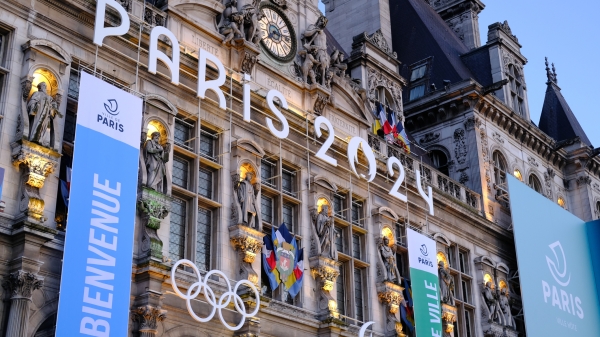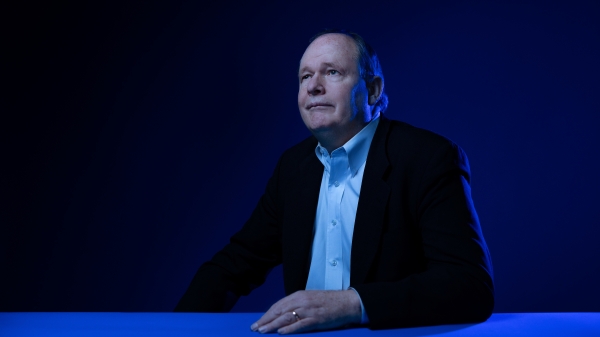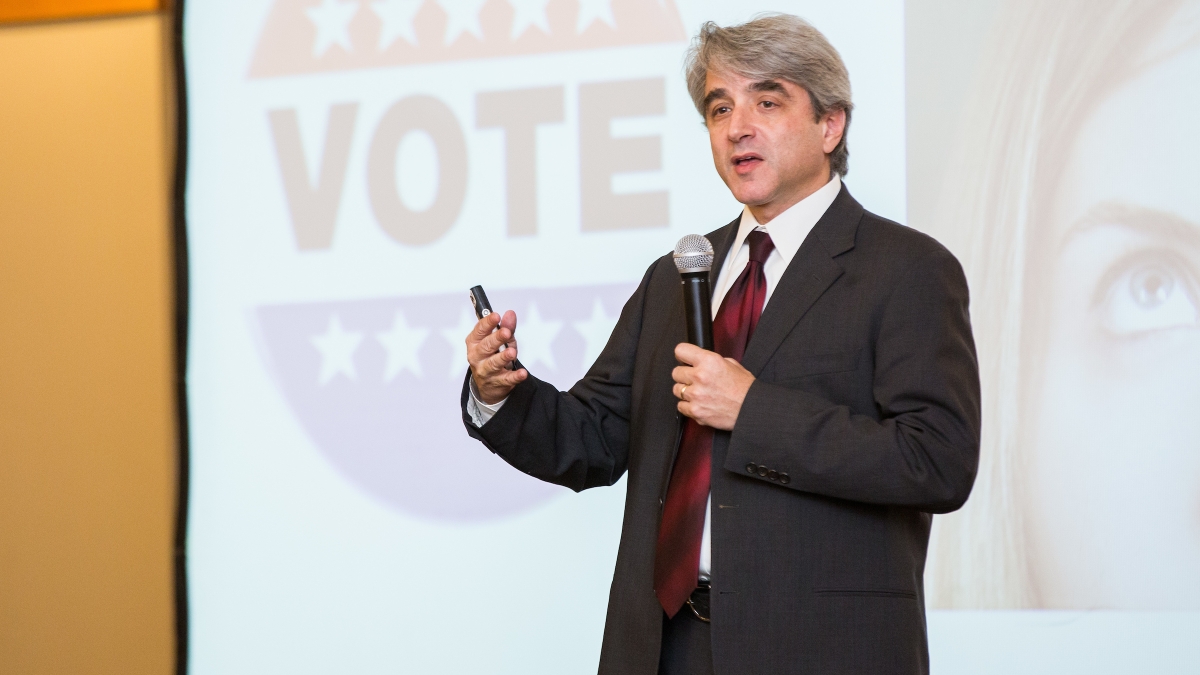The old close-your-eyes-and-point gambit might be effective for picking your next vacation spot on a map, but it’s less than advisable when it comes to choosing a name on a ballot.
The temptation is understandable, though. The time and mental commitment it takes to understand the number and complexity of all the issues at hand can be overwhelming. But we needn’t fret.
“No voters are fully informed,” said Arthur LupiaArthur Lupia is an elected member of the American Academy of Arts and Sciences and an elected fellow of the American Association for the Advancement of Science. He has been a John Simon Guggenheim Fellow, a fellow at the Center for the Study of Behavioral and Social Sciences, and is one of the inaugural Andrew Carnegie Fellows. His awards include the American Political Science Association’s Ithiel de Sola Pool Award, the American Association for Public Opinion Research's Mitovsky Innovator's Award, and the National Academy of Sciences' Initiatives in Research Award. on Monday night in Tempe.
The political scientist and University of Michigan professor brought a sense of humor and practicality when he spoke at Arizona State University’s Old Main Carson Ballroom as part of the School of Politics and Global Studies’ Kramer Lecture Series.
Lupia’s talk, titled “I’ll See It When I Believe It: How Voters Think and Learn About Elections,” was based on his extensive research on decision-making and learning, civic competence and legislative processes. His latest book, “Uninformed: Why People Know So Little About Politics and What We Can Do About It,” was recently published by Oxford University Press.
Assistant professor Mark Ramirez said the School of Politics and Global Studies saw an opportunity to meet a mounting student interest in the current election and wanted to provide a place where they and the community could learn more about how to become better informed in a nonpartisan format.
“Dr. Lupia’s new book provides concrete solutions to help improve voter competence,” he said. “People have genuine disagreements about core values and what they want from society. So in order to get them to learn more about certain issues, you have to motivate them and show them why they should care.”
Earlier in the day, Lupia met with the school’s Pi Sigma AlphaPi Sigma Alpha is a national honor society that recognizes scholarship and excellence for students in political science. members, where they discussed the Data Access and Research Transparency initiative, which he is spearheading.
“There has been a growing concern among political scientists about fraud and other issues related to the scientific process,” said Ramirez. “Professor Lupia is at the forefront of the movement to increase the transparency of what we do as scientists and promote data sharing, etc., so we wanted to introduce our students to this important aspect of academic research.”
At the evening lecture, Lupia set out to answer four questions: Why are so few voters fully informed? How much does a voter need to know? How do voters learn? Should I be cynical?
Again, the answer to the first question is simple: No voter is fully informed. But when you consider the answer to the second question, that’s not necessarily a bad thing. Certain issues matter more to certain people based on what they’re trying to accomplish and what their situation is.
So how much does the average person need to know about every little political issue?
“The answer is different for different people,” said Lupia. “There’s no silver bullet.”
Of course, the more a person knows about an issue before they vote on it, the better. Which means it’s important to understand how people learn about those issues, and to cater to that. And in 2016, there’s plenty of competition for voters’ attention.
“If you want to get somebody’s attention over cat videos, you have to be able to tap into what they need at that moment,” said Lupia. The way to do that is to make the information you’re offering urgent, simple and direct.
An example of leaders getting that wrong is the Brexit decision earlier this year. As Lupia explained, those in power who wanted the UK to break with the European Union understood they needed to make the idea easily comprehensible. A catchy phrase that implied a simple consequence worked in their favor (Vote for Brexit and you’ll get cheaper health care!).
Whereas those in power who favored staying with the EU attempted to over-explain the consequences, losing people’s attention and, ultimately, their votes.
Knowing that leaders can and do manipulate voters might cause some to question the validity of the whole process. But Lupia pointed out one important truth: “Elections focus on issues where values diverge.”
“The current U.S. presidential nominees actually agree on a ton of issues,” he said. But, he added, just like no one wants to watch their favorite sports teams play catch, no one wants to watch a campaign that has no conflict; “it’s not TV-ready.”
According to Lupia, voters need to realize that media sensationalism takes away from the true purpose of the government: to enhance the quality of our lives.
“It’s so easy to be mesmerized by the national stage, but if that’s all you focus on, you miss the amazing work being done to better everyone’s quality of life,” he said. “And that’s what politics is about.”
Top photo: Arthur Lupia speaks about how voters think and learn about elections at Carson Ballroom in Old Main on the Tempe campus Monday evening. Photo by Deanna Dent/ASU Now
More Law, journalism and politics

New online certificate prepares grad students for complex challenges of US democracy
If United States politics in the 2020s have revealed anything so far, it’s that the U.S. has a complex history with ramifications that still powerfully resound today. In order to help students…

Reporting live from Paris: ASU journalism students to cover Olympic Games
To hear the word Paris is to think of picnics at the base of the Eiffel Tower, long afternoons spent in the Louvre and boat rides on the Seine. Competitive sports aren’t normally top of mind.However…

Exploring the intersection of law and technology
Editor's note: This expert Q&A is part of our “AI is everywhere ... now what?” special project exploring the potential (and potential pitfalls) of artificial intelligence in our lives. Explore…
